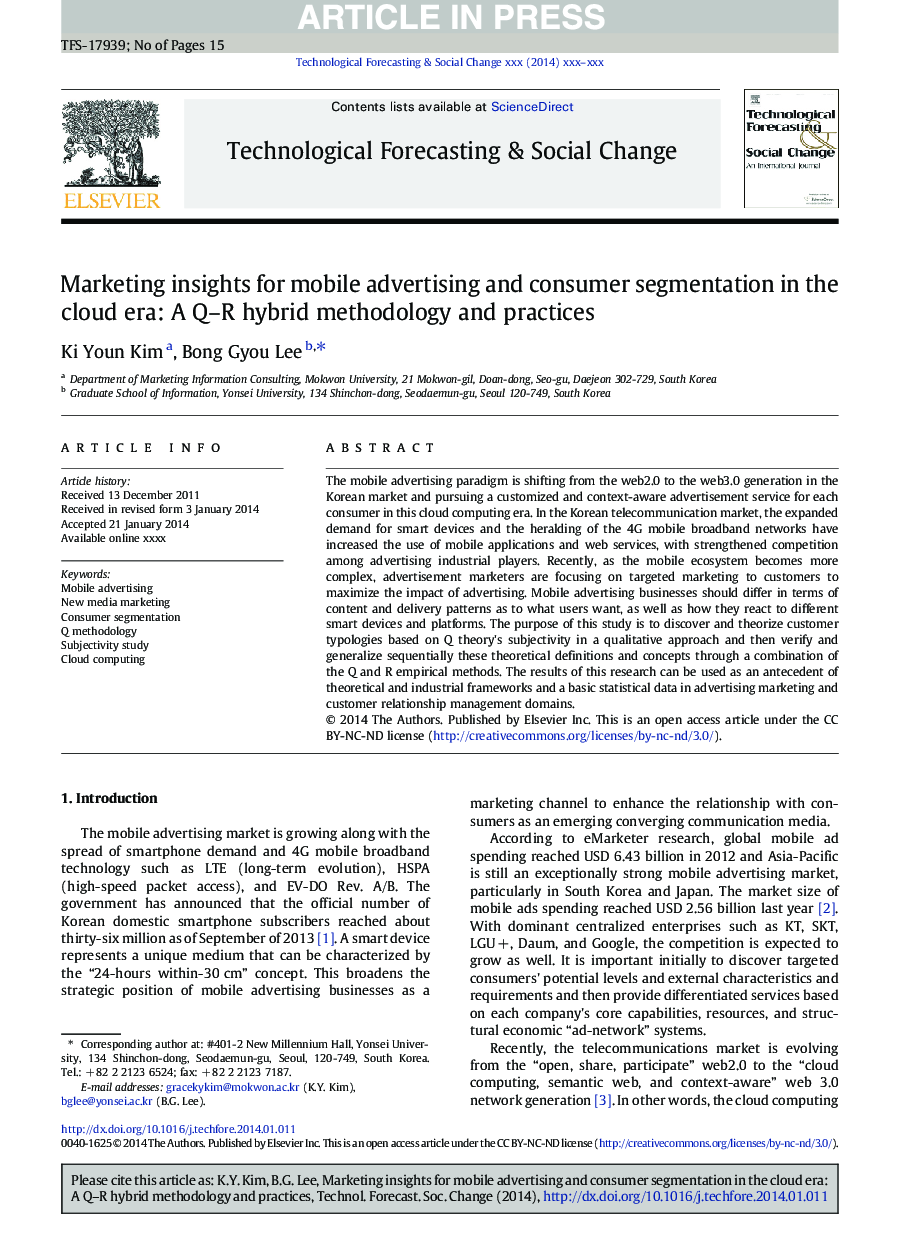| Article ID | Journal | Published Year | Pages | File Type |
|---|---|---|---|---|
| 7256869 | Technological Forecasting and Social Change | 2015 | 15 Pages |
Abstract
The mobile advertising paradigm is shifting from the web2.0 to the web3.0 generation in the Korean market and pursuing a customized and context-aware advertisement service for each consumer in this cloud computing era. In the Korean telecommunication market, the expanded demand for smart devices and the heralding of the 4G mobile broadband networks have increased the use of mobile applications and web services, with strengthened competition among advertising industrial players. Recently, as the mobile ecosystem becomes more complex, advertisement marketers are focusing on targeted marketing to customers to maximize the impact of advertising. Mobile advertising businesses should differ in terms of content and delivery patterns as to what users want, as well as how they react to different smart devices and platforms. The purpose of this study is to discover and theorize customer typologies based on Q theory's subjectivity in a qualitative approach and then verify and generalize sequentially these theoretical definitions and concepts through a combination of the Q and R empirical methods. The results of this research can be used as an antecedent of theoretical and industrial frameworks and a basic statistical data in advertising marketing and customer relationship management domains.
Related Topics
Social Sciences and Humanities
Business, Management and Accounting
Business and International Management
Authors
Ki Youn Kim, Bong Gyou Lee,
